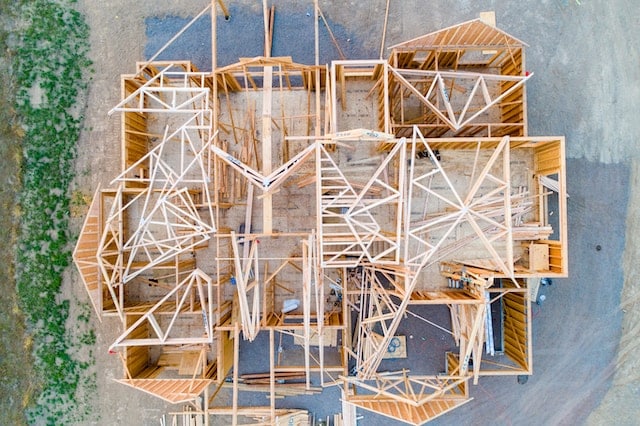In the world of property development, one of the most critical decisions you’ll make is selecting the right property or site for your project. If you’re looking to build a new home, you’re probably on the hunt for newer, better ways to find sites for development. The success of your venture heavily depends on the location and suitability of the site you choose. If you don’t research the area and find out what type of property is in the most demand, then you could end up holding onto a property that simply won’t sell. Here at BLG we explore some top tips on how to find the perfect property and area for development.
Market Research
Before embarking on a search for sites, your expectation will need to be researching many sites before finding a site that works, as there are many sites where development is unviable. Thoroughly investigate the real estate landscape within your intended location. Identify regions with growth prospects, strong demand, and favourable economic conditions. The choice of a promising location can have a substantial impact on the success of your project.
Inadequate research may lead to complications when selling or renting the property. Different areas are better suited to specific types of development. For instance, urban areas often prove conducive to building apartments and one or two-bedroom homes. Prior to breaking ground, it is imperative to conduct comprehensive area research, including an understanding of the property types in demand and their associated average prices. Addressing market gaps increases the likelihood of selling your developments and achieving profitability.
Network & Collaborate
Networking and collaboration are crucial aspects of finding the right property for development. Building relationships with local real estate agents, property developers, and professionals in the industry can open doors to valuable opportunities and resources. Here’s an expanded look at how to network and collaborate effectively:
Connect With Local Real Estate Agents
Local real estate agents are often the first to know about new properties coming onto the market. They can provide you with listings that match your criteria and help you navigate the buying process. Meet with several agents, express your goals, and maintain open communication with them.
Engage With Property Developers
Property developers, especially those with experience in your target market, can offer insights into the best areas for development. They may also have off-market properties or partnership opportunities. Attend industry events, seminars, and conferences to meet and learn from experienced developers.
Attend Real Estate & Development Events
Networking events, real estate expos, and local business gatherings are excellent opportunities to meet potential partners and collaborators. Engage in conversations, share your goals, and be open to learning from others in the field.
Online Platforms & Real Estate Listings
Utilise online resources to search for properties. Websites like Rightmove, Zoopla, and OnTheMarket, as mentioned, can help you find listings in your desired areas. Set up email alerts to receive notifications of new listings that meet your criteria.
Social Media & Forums
Participate in social media groups, forums, and discussion boards related to real estate and property development. These platforms can be a source of valuable information, and you can connect with professionals and enthusiasts who share your interests.
Local Government & Planning Departments
Establish a good working relationship with local government officials and planning departments. They can provide valuable information about zoning changes, future development plans, and potential incentives for your projects.
Visit Potential Sites
Don’t rely solely on online information, visiting potential development sites in person is an essential step in the property search process. When you visit a property in person, you can evaluate its physical condition, which may not always be accurately represented in online listings. Inspect the existing structures, infrastructure, and any potential issues, such as structural damage, mould, or environmental concerns.
Furthermore, being on-site allows you to assess the property’s location more thoroughly. You can gauge the proximity to essential amenities, transportation hubs, schools, parks, and shopping centres. Understanding the neighbourhood and its growth potential is critical for a successful development project. Sometimes, a gut feeling, or local knowledge gained from visiting a site can be invaluable. Your instincts and the information you gather during a visit can help you make a more informed choice.
Auctions
Another great approach to discovering property development prospects involves attending a property auction. It’s often possible to acquire the auction catalogue in advance, allowing you to conduct the necessary research before participating in the auction event. Even if a property appears to be attractively priced, it could potentially be in a problematic area or have unfavourable neighbours, making it challenging to rent or sell in the future.
A variety of property types may be included in the listings, including those ready for immediate development, those in need of renovation or refurbishment, and opportunities for land development. It’s advisable to enter the auction with a predetermined budget in mind and avoid getting caught up in the excitement of the auction atmosphere.
Analyse Costs
Always make sure you evaluate the expenses associated with property acquisition, encompassing the purchase price, legal fees, and potential renovation or development costs. Ensure that the property aligns with your financial plan. Identifying the most lucrative development opportunity is a challenging task, heavily contingent on the location you intend to develop.
When constructing within urban or city centres, you typically have the capacity to charge higher rates per unit, but the development process is likely to incur higher costs. Conversely, suburban homes may have a somewhat lower cost per unit compared to urban areas, but they could yield larger profit margins per unit, ultimately resulting in greater overall profits. Lastly, apartments tend to generate more substantial profits since you can accommodate a greater number of units on the same amount of land, which proves especially advantageous in areas where land availability is limited.
Environmental Considerations
Evaluate any environmental factors that may affect your development, such as contamination, flood risk, planning permissions or natural preservation areas. These factors can significantly impact your project’s feasibility. You need to understand the different types of land, from farmland, industrial, greenbelt or brownfield. What they offer, and their limitations before deciding on making a purchase.
Finance With BLG
Finding the right property is a crucial step in your property development journey. Taking the time to research, evaluate, and select the best property for your project can lead to a more successful and profitable development. BLG are a leading lending specialist in property development finance, who’s expertise, support and guidance can get your projects off the ground successfully. Contact BLG today.

